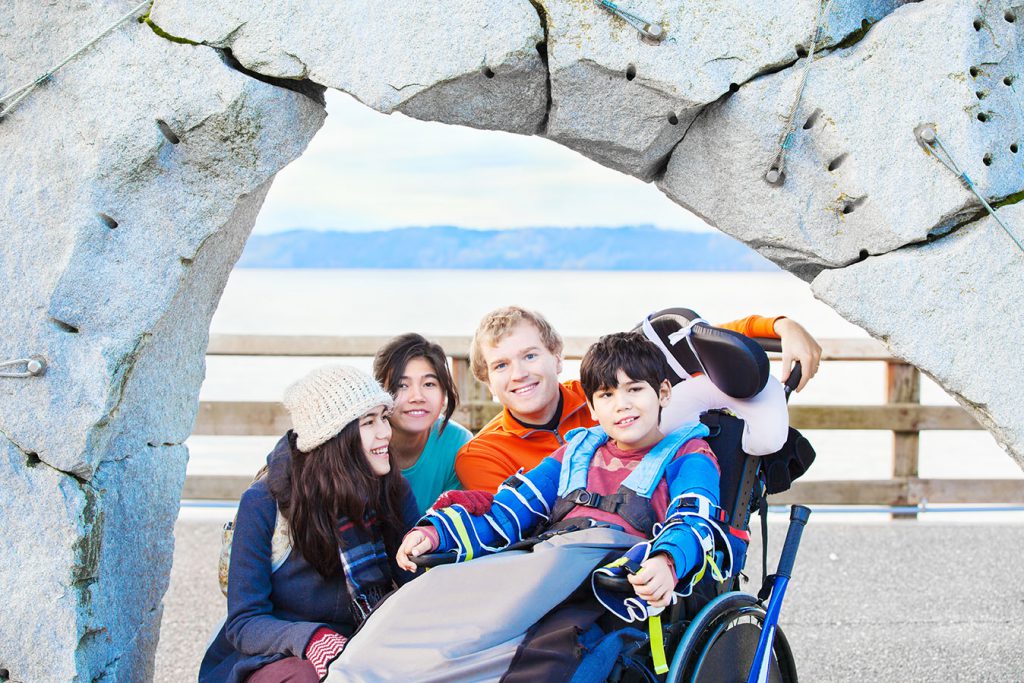
27th September is World Tourism Day, tourism for all.
To mark world tourism day, we are revealing all the details you won’t know as well as everything you ever wanted to know about accessible tourism and the travellers whose trips are marked by accessibility. In Spain, there are three million people with a registered disability, four if we then also include dependency, with more than 7 million choosing their destination based on its level of accessibility. If we then take Europe as a whole, the figure shoots up to 90 million. The 1st TUR4all International Congress on Accessible Cruise Destinations which will be held on 2-3 December in Valencia, Spain aims to raise awareness about all these facts and today we begin by sharing some very thought-provoking statistics. Because accessibility is synonymous with good quality.
Did you know that accessible tourism currently affects 9% of people in Spain?
In Spain, there are 3.8 million people with some degree of disability. Of these 67% have reduced mobility, 25.8% are visually impaired, 28.1% are hearing impaired, 19.4% have problems communicating and 16% have learning difficulties, which equates to a huge number of potential tourists. This form of travel not only affects people with disabilities, but also families with children in pushchairs, the elderly and even their companions, which brings the figure to 7 million, and their choice of destination is based on its accessibility
Did you know that accessible tourism is a market whose growth shows no signs of slowing down?
In Europe, there are 138.6 million people with accessibility needs and the countries with the highest numbers are Germany, France, United Kingdom, Italy and Spain, which together total 10 million.
Did you know that for accessible tourism, it is estimated that there will be more than 14 million elderly people by 2066?
Life expectancy in Spain is growing exponentially in Spain year by year. In Spain in 2017, 18.8% of the population were over 65 years old, but by 2066 it is estimated that this percentage will be as high as 34.6%. One of the causes of this ageing population is that from 2024 onwards, the baby-boomers, the generation registering the highest number of births in Spain, will reach retirement age and presently there is no ‘generational replacement’ to mitigate the trend. Many of these baby-boomers are part of the so-called ‘empty nesters’ market segment as they register a significant increase in disposable income given that they are not travelling with children.
Did you know that accessible tourism has a gross turnover of 786 billion euros in the European Union?
Accessibility not just a social issue, it is something that affects all sectors, and that includes the economy. Currently, more than 783 million trips a year are made with accessibility as a benchmark. It should also be highlighted that of the gross turnover of 786 billion euros, 384 billion are destined for the total GDP of the European Union, which equates to 2.75%. An asset from an economic perspective with a wealth of unexploited potential. As far as purchasing power in Spain is concerned, the over-55s earn 50% more that those aged between 24 and 35 years old, with priority given to leisure, travel, cruises and restaurants
Did you know that in accessible tourism only 9.2% of tourist facilities and services in the European Union have some degree of accessibility?
According to the TRAN Committee Report (Transport and tourism for people with disabilities and reduced mobility), published in May 2018 by the European Union’s Directorate General for Internal Policies, only 9% of tourism resources in the European Union have facilities and services with some degree of accessibility, which means that there is a crucial shortage of accessible recreational experiences attractions and opportunities. This means that up to 90.8% of facilities are not equipped to adequately cater to the requirements of people with accessibility needs. The sector is not being addressed and there is a great deal of room for improvement.
All this, and a great deal more will come under discussion at the 1st TUR4all International Congress on Accessible Cruise Destinations which will be held on 2-3 December at the Santos Las Arenas Hotel in Valencia with a focus cruise tourism. An event being organised by PREDIF, AISM – Italian Multiple Sclerosis Association -, Accessible Portugal and ENAT -European Network for Accessible Tourism- with the collaboration of the Spanish Secretariat of State for Tourism, Spanish Ports Authority, Region of Valencia Tourist Board, Valencia City Council, Turismo Valencia Foundation, Valenciaport and Cruises News Media Group. Because accessibility is synonymous with quality


